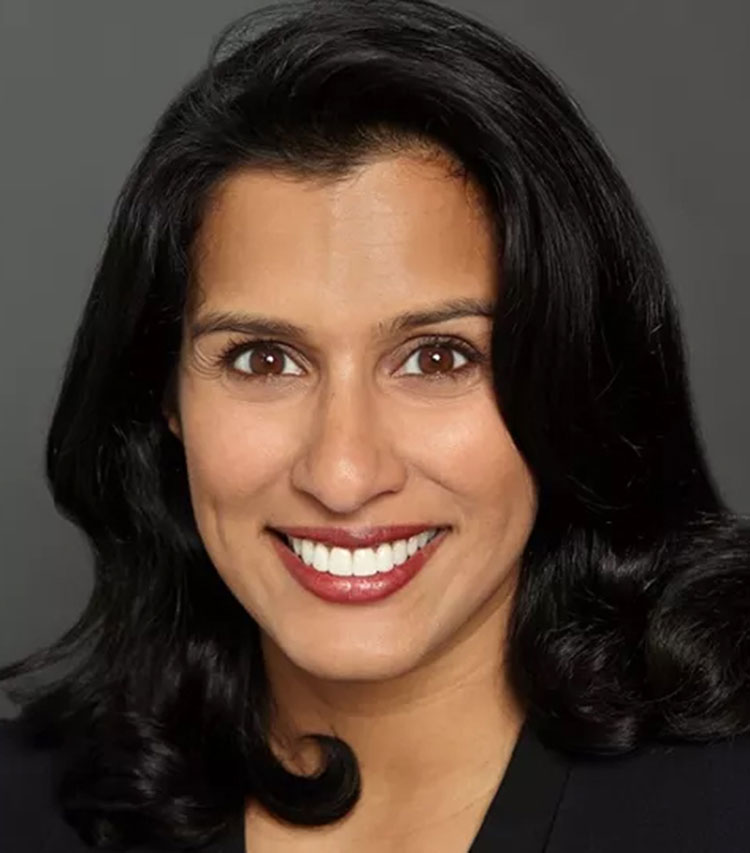Navigating Your Career in the Evolving Media Industry
From managing change to taking risks, advice to take control of your professional growth

The smarter way to stay on top of broadcasting and cable industry. Sign up below
You are now subscribed
Your newsletter sign-up was successful
Careers are interesting things. When you start out, you don’t really know what you are doing, and nobody works for you, but you invariably work for lots of people. You learn by doing, watching, getting it right and getting it wrong. And, if you’re lucky, through the help of your colleagues and leaders, you start to grow. Slowly, we amass the skills and insights necessary to progress whether that means into management or more deeply as an individual contributor. Throughout the process, consciously or unconsciously, we’re always learning.
Over the 20-plus years I’ve been in advertising — through my work, network, and great organizations like IRTS Foundation, She Runs It and NAMIC — I’ve had the opportunity to speak with lots of groups and individuals about the things I have learned on my journey. When I talk with people just starting out, inevitably a lot of questions come up around how to navigate a career, especially in an industry that is constantly changing. One of my recent mentee groups asked me to write some of those lessons down. It’s a long list but I am eager to try “pay it forward” by sharing more broadly 26 lessons learned or actionable insights that hopefully resonate.
I would be remiss not to include here a big thank you to all the colleagues, friends, mentors, and allies that have been and continue to be my teachers — generously sharing their wisdom with me.
- It’s the professor, not the class. The people you work with and for will make or break your happiness and long-term success more than any other factor. Choose wisely.
- You become successful by making other people successful. That means your customers, team, boss, peers, colleagues, partners, etc.
- If you feel like you don’t fit in, remember that what makes you different is a source of unique (and needed) value.
- Time is a finite resource. Make good choices about where and with whom you spend yours.
- Don’t compromise on operating with integrity and respect for others and yourself.
- Never underestimate your (or another’s) ability to learn new things so long as you (or they) are willing to make a sincere and sustained effort.
- Wisdom comes from unexpected sources and in unexpected packaging. Strive to be an avid reader and active listener; there is something you can learn from every conversation, person, or experience.
- Take care of yourself and others. Give yourself and others grace and kindness. We’re all only human.
- Take the enterprise view. It immediately elevates you, your thinking and your work.
- Learn to be a good storyteller. Humans are wired for narrative, and a story is much more memorable, compelling and shareable than a collection of data or facts.
- There is huge value in simplifying. This also applies to communication. Strive to use less jargon, fewer words or metrics, and shorter lists (I am breaking my own rule here!).
- Your actions and how you consistently show up every day will define your experience more than what you studied, where you went to school, what company you work at, what your job title is.
- You are the steward of your own experience and career.
- You can lead from any level or position. If you want a bigger platform, start with the one you are standing on. Choose how you show up. Leaders think about what groups and teams need and contribute in ways that are additive. An act of leadership can be as simple as the energy and body language you bring into a meeting.
- Being able to disagree with someone or critique something openly, productively, constructively and keep the conversation positive, is a valuable skill. Find low-stakes (maybe even non-work-related) ways to practice because there is no other way to get better.
- Bravery isn’t the absence of fear, it's feeling fear or discomfort and doing something anyway. Have hard conversations, try new things, take risks, own your mistakes and ask directly for what you want. The more comfortable you are being uncomfortable, the more possibilities you unlock.
- Change is constant, suffering is optional (hat tip: Doug Weaver).
- You can negotiate just about anything, so long as you have two rational parties. If you don’t have two rational parties, you’ll have to find another solution.
- There is always another bus. Don’t focus on the setback, deal you didn’t close, job you didn’t get, etc. for too long. Look for any lessons. Remember it’s not always about you. Throw yourself a tightly timed/finite pity party if you need it and then move forward.
- If you don’t know what to do about something, take a break. Go for a walk, grab a bite, sleep on it, talk it through it with a trusted person or all of the above. Clarity will find you.
- “Everything will be OK in the end. If it’s not OK, it’s not the end.”
- A great professional network is one that goes up, down, across and beyond your direct function.
- Sometimes you just have to let things play out. One of my favorite people shared this important lesson in a memorable joke, the punchline being “Look, the czar could die, the dog could die, lots could happen … it’ll work itself out.”
- Test, learn, iterate. And when you make mistakes, which you will because we all do, do your best to ensure they are new ones.
- Whether you’re building a relationship or navigating a hard problem, a moment of genuine levity or humor can make things inordinately easier.
- Just breathe. You are enough, and you’ve got this. ■
The smarter way to stay on top of broadcasting and cable industry. Sign up below
Pooja Midha is general manager, Effectv and a board member of She Runs It and the IRTS Foundation.

